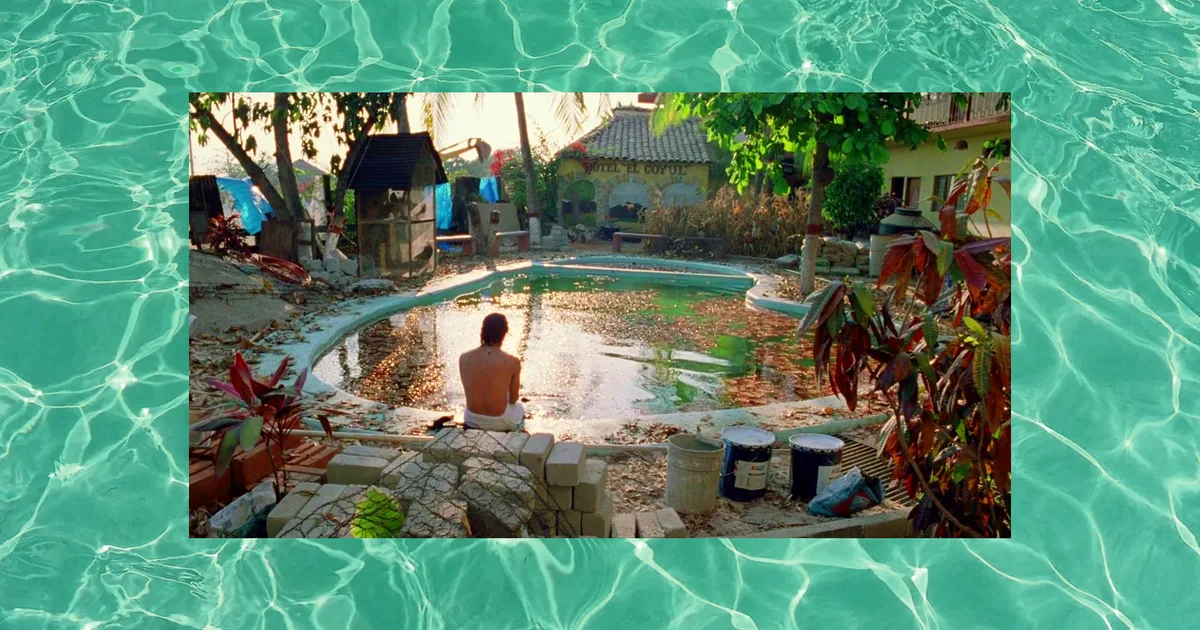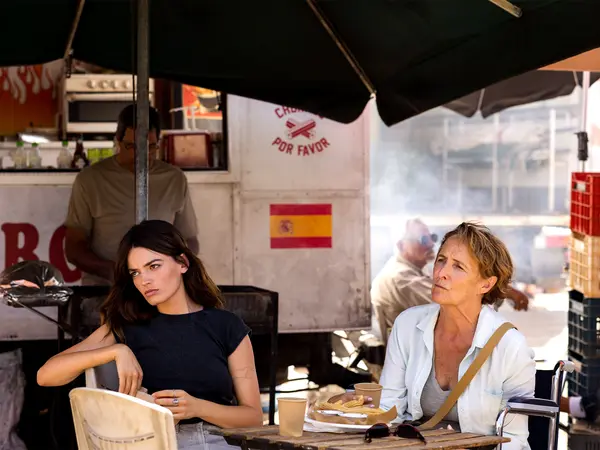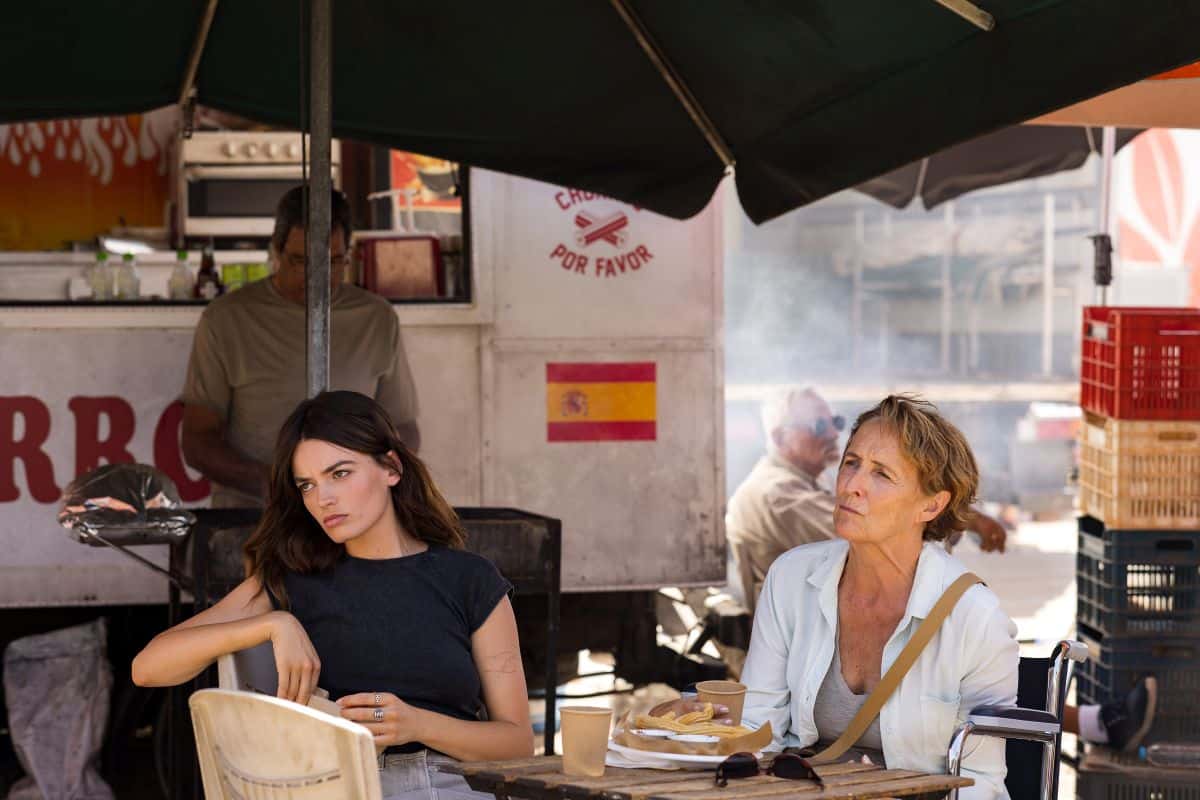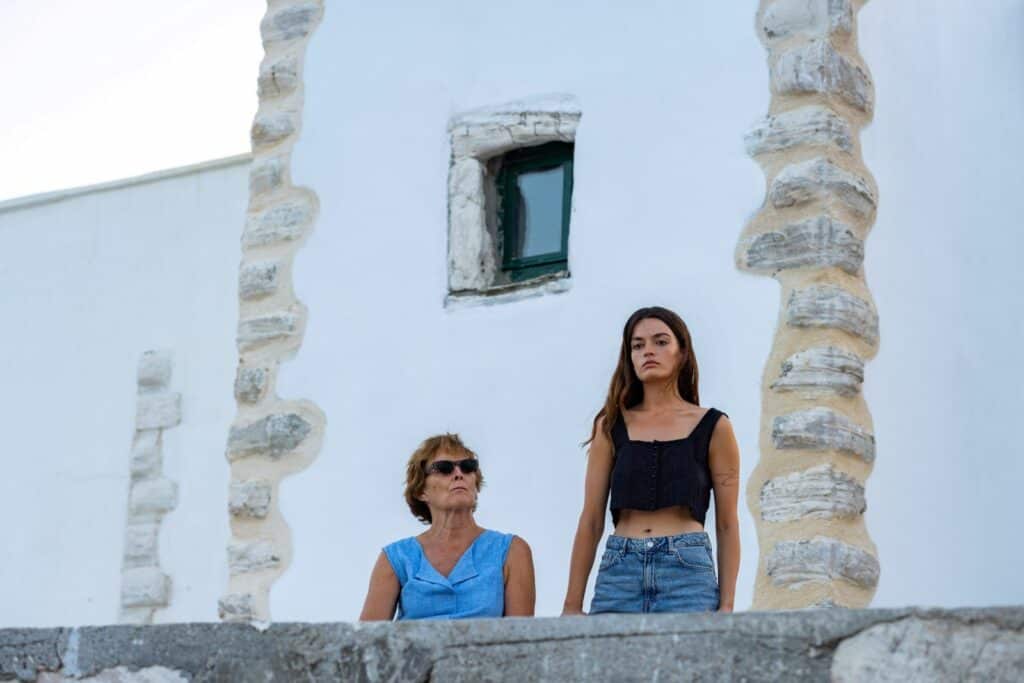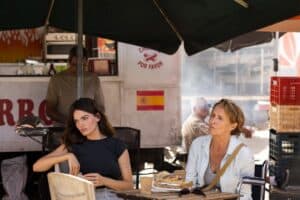
Later on, we see Ned teaching a little boy to swim in an empty pool, the water having been drained over safety concerns. Upon witnessing the boy’s skepticism, Neddy says, “If you make believe hard enough that something is true, then it is true for you,” because, “when I was a kid people used to believe in things.” This scene effectively summarises Neddy’s own delusion, with his attempts to revert to a state of childhood innocence shattered in the film’s final pool scene. Unlike Odysseus, Ned’s ending is not one of triumph. For the first time, we see him outside of the pool setting; having finally reached his own home, he finds the property overgrown with weeds, the tennis court unusable, and his family long gone. Back on dry land, Neddy’s childish illusion and dream of his “all-American family” is no longer contained in a pool-shaped fantasy.
If The Swimmer is considered the pinnacle of the swimming pool canon, then 1967’s The Graduate is a worthy companion. The film follows Benjamin Braddock (Dustin Hoffman), who has just graduated from university. Upon moving back into his parents’ house, as he desperately tries to figure out what he wants to do with his life, he soon finds himself pulled into an affair with bored housewife Mrs Robinson (Anne Bancroft).
Benjamin’s feelings of uncertainty and loss of freedom are best summarised in an extended sequence depicting a bronzed Benjamin floating at the bottom of a pool after being forced into a scuba suit on his birthday for the amusement of his parents and their friends. By shooting the scene from Benjamin’s submerged perspective – through narrow goggles, completely surrounded by water – director Mike Nichols invites us to view the world as Benjamin does. The camera pans to take in the suffocating blue abyss, emphasising Benjamin’s feelings of isolation in his own home.
In this moment, the film also masterfully utilises sound, with the only noise being Benjamin’s exaggerated breathing as he drowns out the sound of the party and therefore the expectations and responsibilities of adulthood. Later, we see Benjamin lounging on a lilo, after sleeping with Mrs Robinson for the first time. He remarks to his father upon his questions about whether he will be attending graduate school, that “it’s very comfortable just to drift here”, perfectly summarising his feelings towards this shift. Lying on the lilo, he doesn’t have to choose between swimming or not swimming; the pool is a liminal space representing his awkward transition from boy to man.
Elsewhere, Alfonso Cuarón’s 2001 road movie Y tu mamá también, charts the transition of late teenagers with similar intensity, at a time of sociopolitical upheaval in Mexico. In a recent interview with Movie Maker, Cuarón revealed the film’s intrinsic link to youth: “For us, this movie is about identity. Two young men seeking their identity as adults…together with that is an observation of a country that in our opinion is a teenage country looking for its identity as a grown-up country.”
Both Julio (Gael García Bernal) and Tenoch (Diego Luna) have finished school and are seduced by the allure of being by the water during the long hot days of summer, free from their highschool girlfriends and as fluid as the element they inhabit. In a demonstration of their infantile energy, we see these two boys compete against each other in swimming and masturbating contests in the Olympic-size pool at the country club where Tenoch’s father is a member, while fantasising about Salma Hayek and Luisa (Maribel Verdú), “la españolita”, the wife of Tenoch’s cousin. A high-angle long shot shows the boys side by side lying on adjacent springboards, engaged in simultaneous masturbation, before an underwater shot shows a squirt of semen entering the water, foreshadowing their journey of sexual discovery.
As their relationship with Luisa intensifies, the boys once again swim together, this time in a distinctly less well-kept motel pool overflowing with leaves. This change in setting embodies the boy’s evolving relationship, which is now entirely symbolic of their competition for Luisa’s affection. Julio has seen Tenoch and Luisa having sex and walks out to sit at the edge of the pool. The narrator says that Julio has only ever felt anger like this when he saw his mother with a man when he was a child. Instead of talking, they decide to race again. A victorious Julio reveals that he slept with Tenoch’s girlfriend; the narrator states that Tenoch had only ever felt like that when, as a child, he read an article about his father selling contaminated corn to the poor. It is critical that the boys’ ambivalent relationship with one another is backdropped by swimming pools because it allows us to understand how they each construct their concept of sexual identity in relation to their own youthful experiences. They are not yet mature enough to express certain emotions which continue to bubble under the surface.
At the end of the film, a significant shift occurs when the constrictive, self-contained pool is exchanged for the vast expanse and unknown of the ocean. Choosing to stay in rural Mexico alone, Luisa submerges herself in the ocean, and so enacts a kind of symbolic death. Tenoch and Julio were drawn to Luisa just as they are drawn to water, yet their eventual return home signals their acceptance of meeting their parents’ expectations. As both the boys and country open themselves to the unknown, Cuarón leaves us with a final message: “Life is like the surf. Give yourself away like the sea.”
